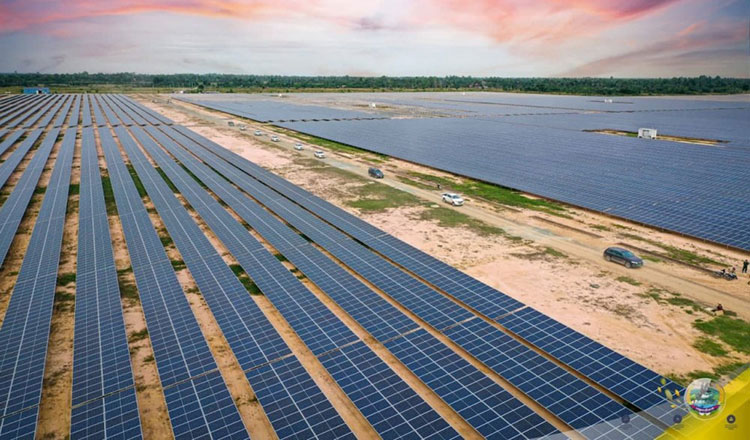Solar Energy in Cambodia: What Every Student and Homeowner Should Know

Solar energy is rapidly transforming Cambodia’s energy landscape, offering sustainable solutions for both homeowners and students. As the nation strives to meet its growing energy demands and environmental commitments, understanding the fundamentals of solar power becomes increasingly vital. This comprehensive guide delves into the basics of solar energy, its significance in Cambodia, benefits for homeowners and students, steps to adoption, challenges, and future prospects.
- What is solar energy?
- Why Solar Energy Matters in Cambodia
- Benefits of Solar Power for Homeowners
- How Students and Schools Benefit from Solar Energy
- How to Get Started with Solar Energy in Cambodia
- Common Challenges and How to Overcome Them
- The Future of Solar Energy in Cambodia
- Conclusion: Why Now Is the Time to Go Solar
What is solar energy?
Solar energy harnesses the sun’s power to generate electricity through photovoltaic (PV) panels. These panels convert sunlight directly into electrical energy, providing a clean and renewable source of power. The key components of a solar energy system include:
- Solar Panels: Capture sunlight and convert it into direct current (DC) electricity.
- Inverter: Transforms DC electricity into alternating current (AC) for household use.
- Battery Storage (Optional): Stores excess energy for use during cloudy periods or nighttime.
- Mounting System: Secures panels in optimal positions for maximum sun exposure.
Understanding these components is crucial for anyone considering the transition to solar power.
Why Solar Energy Matters in Cambodia
Cambodia’s rapid economic growth has led to a tenfold increase in electricity demand over the past 15 years. This surge presents challenges, including reliance on imported electricity and fossil fuels, leading to high and volatile energy prices. Solar energy offers a viable solution to these issues.
High Solar Potential
The country benefits from abundant sunlight, making it ideal for solar energy generation. Well-positioned solar panels can efficiently harness this energy, reducing reliance on imported resources and enhancing energy security.
Government Initiatives
In November 2024, the Cambodian government announced plans to raise the share of renewables in power generation to 70% by 2030. To achieve this goal, multiple renewable projects, including solar, are under construction or approved for the coming years.
Environmental Impact
Transitioning to solar energy reduces greenhouse gas emissions, contributing to global efforts against climate change. By decreasing reliance on fossil fuels, Cambodia can lower its carbon footprint and promote sustainable development.
Benefits of Solar Power for Homeowners
Adopting solar energy presents several advantages for Cambodian homeowners:
- Cost Savings: Solar power can significantly reduce electricity bills. Although initial installation costs exist, long-term savings often outweigh these expenses. With electricity prices in Phnom Penh at $0.19 USD per kWh as of January 2025, generating your own power can lead to substantial financial benefits.
- Energy Independence: Generating electricity on-site decreases reliance on the national grid, providing stability during power outages and reducing exposure to fluctuating energy prices.
- Increased Property Value: Homes equipped with solar energy systems may see an appreciation in property value due to the growing demand for sustainable living solutions.
- Environmental Responsibility: Utilizing renewable energy sources demonstrates a commitment to environmental stewardship, aligning with global sustainability trends.
How Students and Schools Benefit from Solar Energy
Solar energy also plays a pivotal role in enhancing educational opportunities:
Reliable Power Supply
In rural areas, schools often face electricity shortages, hindering educational activities. Solar installations provide a dependable power source, enabling the use of electronic learning tools and improving overall educational quality.
Educational Programs
Initiatives like the Youth Solar (YOSO) program educate young people on solar power, climate impacts, and the environment, preparing them for careers in the growing green job market.
Practical Learning
Hands-on experience with solar technology allows students to understand renewable energy systems, fostering skills in science, technology, engineering, and mathematics (STEM) fields.
How to Get Started with Solar Energy in Cambodia
Transitioning to solar energy involves several steps:
- Assess Your Energy Needs: Evaluate your household’s average electricity consumption to determine the appropriate system size.
- Evaluate Site Suitability: Ensure your property receives adequate sunlight and has sufficient space for panel installation.
- Choose a Reputable Installer: Research and select certified solar providers with experience in Cambodian installations.
- Understand Costs and Financing: While upfront costs can be significant, various financing options and potential government incentives may be available to assist with the investment.
- Know the Regulations: Familiarize yourself with local policies regarding solar installations to ensure compliance and maximize benefits.
Common Challenges and How to Overcome Them
While the benefits are substantial, adopting solar energy in Cambodia comes with challenges:
- Initial Investment: The upfront cost can be a barrier. Exploring financing options or government incentives can alleviate this burden.
- Regulatory Hurdles: Navigating local regulations may be complex. Staying informed and consulting experienced installers can ensure compliance.
- Maintenance Concerns: Regular maintenance is essential for optimal performance. Establishing a maintenance schedule with your provider can address this.
- Weather Dependence: Solar energy production varies with weather conditions. Incorporating battery storage can mitigate issues during cloudy periods.
The Future of Solar Energy in Cambodia
Cambodia’s commitment to renewable energy is evident in its ambitious targets and ongoing projects. With plans to add more solar capacity and initiatives to educate the youth, the future of solar energy in the country appears promising. Continued investment and supportive policies will be crucial in achieving these goals.
Conclusion: Why Now Is the Time to Go Solar
Embracing solar energy offers Cambodian homeowners and students a pathway to cost savings, energy independence, and environmental stewardship.



